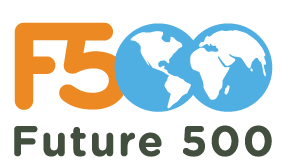What Does it Mean to be a “Good Corporate Citizen” in 2019?
From the mail room to the C-Suite, companies are actively rethinking their own role in tackling big challenges. Here’s why everything is changing, and why that’s a good thing.
Last week our team hosted a group of senior sustainability professionals for Future 500’s fall Corporate Affinity Network (CAN) Working Group. The two-day workshop provided opportunities for peer-to-peer learning on the most important trends and pressing issues facing sustainability teams (and the world) today, and for candid conversations between leading activists and their corporate counterparts.
Key Insights
What is the role of the private sector in America today? What does it mean to be a “corporate citizen”? Across the two-day workshop, these questions repeatedly echoed through the conversations.
“Executives and employees are re-imagining what companies can do to solve challenges within and beyond their walls.”
As social and environmental challenges reach a fever pitch — the Northern California skies outside our meeting space swirled with wildfire smoke — participants agreed that a shift is underway within companies. Executives and employees are re-imagining what companies can do to solve challenges within and beyond their walls.
Here, we share three key takeaways from our discussions.
Employees are Driving Corporate Change
While NGOs, investors, customers, and other traditional stakeholders continue to pressure companies on social and environmental issues, a new group of actors has emerged: Employees. As staff expectations and demographics change, this group of internal stakeholders is increasingly driving change.
Recent high-profile examples include Google, where workers recently walked out over the company’s handling of sexual harassment accusations, and Microsoft, where staffers protested contracts with Immigration and Customs Enforcement.
Employees are spearheading sustainability and diversity initiatives, and an increasingly millennial-skewed workforce is demanding a stronger say in workplace culture, and corporate direction and strategy. Working Group participants agreed that companies must carefully consider how to respond to activist-oriented employees. A “yes, and..” response might help retain and attract talent, and create tangible, positive change both within and outside office walls.
A New Era of Collaboration
As customer and employee expectations evolve, emerging economies grow, and global industry dynamics shift, companies are changing how they engage with their stakeholders. Working Group participants discussed the importance of companies looking beyond their own operations and supply chains when it comes to tackling some of the most important and seemingly intractable sustainability issues.
“Without proactive engagement, companies risk that solutions will be forged without their input. ”
Specifically, multiple participants cited pre-competitive collaboration as a critical approach to implementing meaningful solutions to global challenges in a changing global context.
What do we mean by changing global context? Well, developing nations are more than just new markets for familiar European and North American brands to carve up and conquer. As these nations grow more prosperous, they have given rise to hundreds of home-grown brands. While some of these new brands have embraced responsible business practices, others have not — and it is a safe bet that many operate with minimal regulatory oversight.
Not only are regulations thin, but traditional corporate shaming tactics such as consumer boycotts simply don’t work. As a result, companies in emerging economies may feel less compelled to improve their practices, and less responsive to calls for change.
Western companies that operate in these markets might form pre-competitive collaborations, and asks companies to demonstrate leadership on issues material to them, their peers, and their stakeholders.
“Always Engage”
Whether the Working Groups conversation turned to the midterm elections, or deforestation, or #MeToo, one constant thread emerged: Always engage.
Without proactive engagement, companies risk that solutions will be forged without their input. They also put themselves at reputational risk by critiquing solutions after they’ve been baked, instead of when they are proposed or implemented. And, most importantly, proactive engagement can lead to lasting solutions with broad support, even from actors that traditionally find themselves in conflict.
For example, participants discussed a recent ballot measure. The initiative sought to raise money to tackle homelessness in San Francisco by taxing large corporations. Some Bay Area tech companies decided to endorse the tax, which was popular among local groups in San Francisco and did eventually pass.
However, some companies opposed the tax, citing specific concerns about how it was written. A similar situation unfolded in Washington State, which saw a fierce battle over a carbon fee ballot measure. A number of oil and gas companies together funded a campaign to quash the measure, purportedly over how it was written. Shell, however, decided to sit out the fight, earning tepid praise — or at least avoiding criticism — from environmental stakeholders in the Evergreen State.
In both cases, companies criticized for opposing popular measures could have protected their reputations and relationships by proactively engaging. That said, remember that lobbying is not proactive engagement. Companies have an opportunity here. When they authentically come to the table, they have the chance to be part of a solution instead of reacting to a crisis.
Until Next Time…
Thank you to all who made last week’s Working Group such a success! And if you’d like us to let you know when we start planning the next one, please join our mailing list.
This article was originally published on Medium.
Future 500 is a non-profit consultancy that builds trust between companies, advocates, investors, and philanthropists to advance business as a force for good. Based in San Francisco, we specialize in stakeholder engagement, sustainability strategy, and responsible communication. From stakeholder mapping to materiality assessments, partnership development to activist engagement, target setting to CSR reporting strategy, we empower our partners with the skills and relationships needed to systemically tackle today's most pressing environmental, social, and governance (ESG) challenges.
Want to learn more? Reach out any time.
Gavriella Keyles (Gavi) is a former Future 500 team member. She advised our partners on a diverse array of sustainability issues, including climate change, energy, and plastic pollution. Connect with Gavi on LinkedIn.
Blog posts by Gavi:





